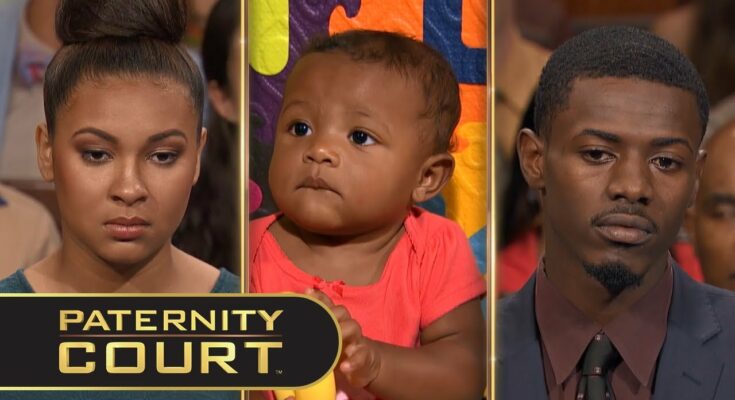n an emotionally charged episode of Paternity Court, we are introduced to two young adults, Ms. Sousis and Mr. Payne, who are embroiled in a dispute that has far-reaching implications – the paternity of their child. The courtroom, presided over by the astute Judge Lake, becomes a stage where their lives unfold, revealing a tale of youthful indiscretion, denial, and the desperate need for acknowledgment and support.
Ms. Sousis, a young woman barely out of her teens, has been thrust into the world of parenthood. She’s been shouldering the immense responsibilities that come with raising a child, and it’s evident that the burden is taking a toll on her. She’s been doing it all alone, and the strain is clear in her voice when she says, “I’ve been doing this for so long by myself, it’s, like, I’m just fed up.” Her frustration is palpable, and it’s clear that she yearns for the support that she’s been denied so far.
Opposite her stands Mr. Payne, the alleged father of the child. He’s a young man who, by his own admission, has been absent and has contributed to Ms. Sousis’ struggles. His words, “She’s a good mom. I can’t take that away from her, but… But at the end of the day she did sometimes… All right, sometimes I do stay away from her a little bit, because what could I do? She doesn’t want…” reveal a man who’s been avoiding his responsibilities, hiding behind excuses and denial.
Judge Lake, with her characteristic candor and wisdom, cuts through their defenses, pointing out the glaring immaturity of their actions. She says, “You know so little about life. And you have so much responsibility.” Her words serve as a stark reminder of the gravity of their situation and the importance of creating a nurturing environment for their child.
In a moment of self-realization, Mr. Payne apologizes to Ms. Sousis. He says, “I just want to say sorry to her… for denying it. And with what, with the stuff that I put her through.” This admission is a significant step in the right direction, but as Judge Lake points out, it’s only the beginning.
Judge Lake warns them, “Now that’s a start, right? But if you guys leave here today, and go back in to that zone of that fightin’, then that’s going to affect her.” She stresses the importance of a healthy upbringing for their child, saying, “The atmosphere in which she’s raised has a direct effect on how she grows. What she thinks about herself. Her future. The possibilities for her life. Whether she feels loved and safe, right?”
The episode concludes with a sense of hope, a hope that these young adults will learn from their mistakes and strive to provide a better environment for their child. It serves as a stark reminder of the responsibilities that come with parenthood and the importance of providing a loving and safe environment for children to grow up in. It’s a wake-up call for young adults who may find themselves in similar situations, and a testament to the power of acknowledgment, responsibility, and the potential for change.
This episode of Paternity Court is not just a story about a paternity dispute. It’s a story about the consequences of our actions, the importance of taking responsibility, and the potential for growth and change. It’s a story that resonates with many young adults today, and serves as a powerful reminder of the impact our actions can have on the lives of others, especially when a child’s well-being is at stake.



